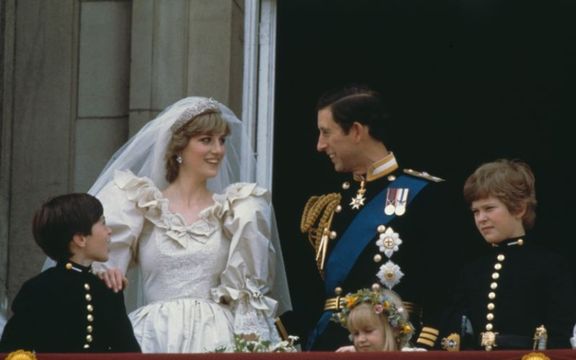
Prince Charles and Lady Diana on the balcony of Buckingham Palace after their wedding in London, England, 29th July 1981. Getty
Irish Government officials worried that then-President Patrick Hillery's decision to decline an invitation to the wedding of Prince Charles and Lady Diana in 1981 would be perceived as a snub, according to newly declassified State Papers.
Hillery decided that he would not attend the wedding shortly after receiving an invitation from Buckingham Palace, prompting senior officials at the Department of Foreign Affairs to worry about how to word the formal reply.
Officials said Hillery's decision to reject the invitation would have to be carefully worded to avoid sounding like a snub.
"To simply convey regrets at being unable to attend without a plausible reason would be difficult and could well be misinterpreted both domestically and internationally," officials stated in 1981, according to the newly released State Papers.
"The press will certainly ask the reason for the non-attendance."
Officials stated that protocol dictated that the Irish President should accept an invitation from the head of state of a friendly country unless there were "compelling arguments against this course of action".
Officials at the Department of Foreign Affairs additionally noted that there were sensitivities over the timing of the Royal wedding, which took place during the H-Block hunger strikes at the HM Prison Maze in Northern Ireland.
"The present state of Anglo-Irish relations … would ensure that there would be much unfavorable comment [in the Republic] if the President were to attend the Royal wedding," department officials noted.
Irish Ambassador to the UK Edward Kennedy eventually wrote to Buckingham Palace explaining that Hillery could not attend the Royal wedding due to a prior engagement. Kennedy later attended the wedding in Hillery's place.
The British press blasted Hillery for not attending the wedding, with grand secretary of the Grand Orange Lodge of Scotland David Bryce describing the Irish President as a "backwoodsman living in the past".
The wedding of Prince Charles and Diana, Princess of Wales
The marriage of Prince (now King) Charles and Lady Diana, took place on 29 July 1981, marking a high point in the popularity of the Royal Family.
It was seen by a global television audience of 750 million in 74 countries. In Britain, where a public holiday had been declared, 28.4 million watched on BBC and ITV - the majority on the BBC - while 600,000 lined the streets of London.
The wedding was broadcast on television, making it one of the most-watched television events of that era.
While it is fair to say that Charles and Diana's actual marriage was less successful than their wedding ceremony, there is no doubt that it was a landmark occasion in British history.
* Originally published on our sister site, IrishCentral.com in December 2023.





Comments